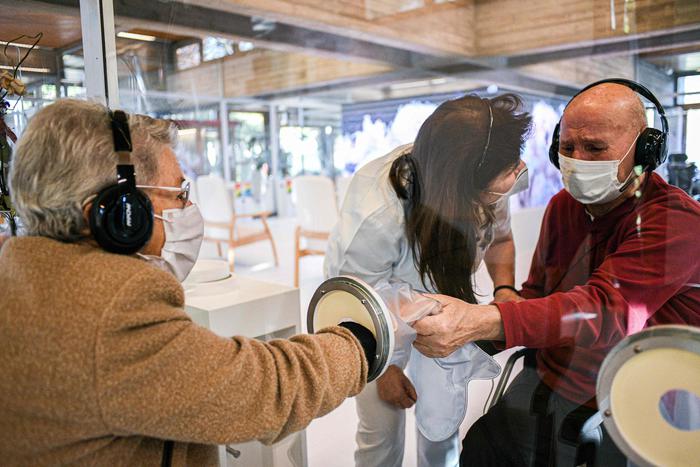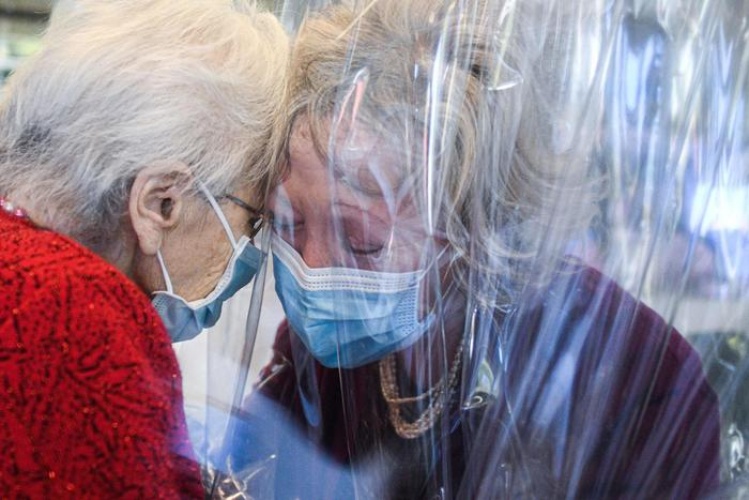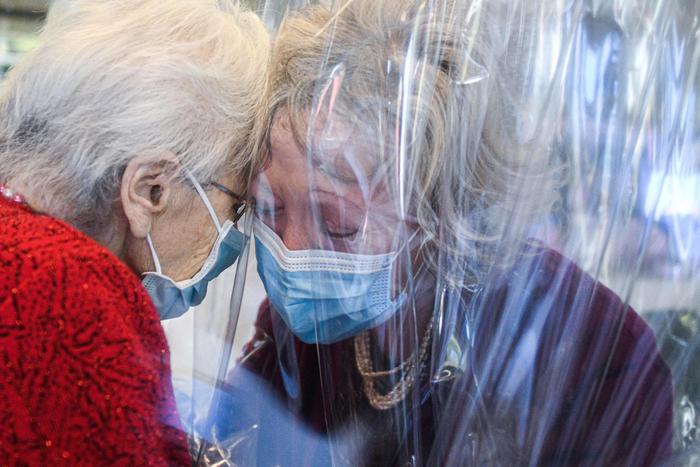The Domenico Sartor nursing home in Castelfranco, near Venice, has created a stanza degli abbracci, or “hug room”, to allow its elderly residents to hug their loved ones without risk of contracting the virus.
The room features a special anti-contagion curtain, made of soft transparent plastic, making an all-important embrace possible during a difficult and often lonely time.
There are also glass walls with special gloved holes for holding hands.
Management at the facility said that physical contact with family members helps its residents enjoy greater mental and emotional wellbeing, which in turn helps them to cope with the situation better.
Relatives are admitted to the isolated room after undergoing strict health and safety protocols, before being allowed to make physical contact through the see-through curtain and talk face-to-face with their elderly loved ones.
It’s an emotional experience, particularly for the residents, some of whom had not seen their family in months, according to a report by TGcom24.

“At last I was able to hug my daughter again,” an elderly lady at the home said, with tears in her eyes.
“After weeks of video calls it seemed like a mirage; it was a contact that I had been missing for too long.”
There are hopes the innovative approach will be adopted in other aged care centres across Italy as the nation grapples with a second wave of coronavirus infections.
Paolo Polidori, the deputy mayor of Trieste, in the Friuli-Venezia Giulia region, has recommended that the hug room be considered in homes all over Europe.
“For months, relatives have not been able to visit their loved ones and who knows how long this will continue for,” he said.
“We will work to find funds, in collaboration with the health agency, the government and all the parties involved to give relief to our loved ones as they find themselves in a devastating situation.”
Italy passed the one million mark for coronavirus cases last week, while the country has recorded more than 45,000 deaths related to the virus since the start of the pandemic.












